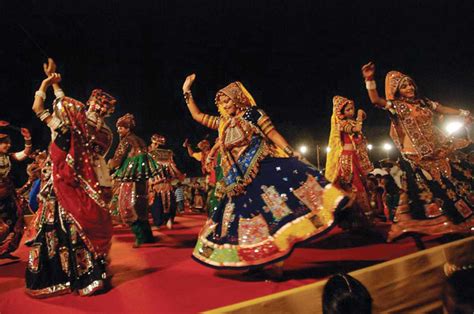Historical Roots and Cultural Legacy
Gujarat, a western Indian state, boasts a rich tapestry of history and culture that spans centuries. The region served as a hub for trade, commerce, and cultural exchange from ancient times. Gujarat is the birthplace of Mahatma Gandhi, the iconic figure of India’s freedom struggle. The state is known for its vibrant Gujarati language, which is spoken by over 60 million people worldwide.

Exploring Gujarat’s Cultural Treasures
Gujarat is home to numerous historical monuments, architectural marvels, and cultural attractions. The state’s architectural legacy is evident in the grandeur of its ancient temples, such as the Somnath Temple and the Modhera Sun Temple. Its palaces and forts, like the Laxmi Vilas Palace in Vadodara, showcase the opulence of its past rulers.
Gujarat also boasts a vibrant folk culture. Gujarati folk dance forms, such as Garba and Raas, are internationally renowned for their energetic beats and graceful movements. The state’s traditional crafts include exquisite handicrafts, such as pottery, embroidery, and handloom weaving.
Industrial and Economic Powerhouse
Beyond its cultural heritage, Gujarat has emerged as a leading industrial and economic powerhouse. The state is home to several major industries, including textiles, petrochemicals, pharmaceuticals, and manufacturing. Gujarat’s ports, such as Mundra and Kandla, play a crucial role in the state’s trade and connectivity with the global market.
Healthcare and Education in Gujarat
Gujarat has invested heavily in healthcare and education. The state boasts a comprehensive healthcare system with renowned hospitals and medical facilities. Gujarat is also a hub for higher education, with esteemed universities and institutions offering a wide range of academic programs.
Benefits of Embracing Gujarat’s Culture
Embracing Gujarat’s culture offers numerous benefits, including:
- Cultural enrichment: Exposure to Gujarat’s rich cultural heritage fosters appreciation for its traditions, art forms, and history.
- Tourism opportunities: Gujarat’s cultural attractions provide a unique opportunity for tourism, generating employment and revenue.
- Economic growth: By promoting its cultural assets, Gujarat can attract investment and create new economic opportunities.
- Social cohesion: Cultural events and celebrations promote community involvement and foster a sense of belonging.
Common Mistakes to Avoid
When exploring Gujarat’s culture, it is essential to avoid certain common mistakes:
- Disrespecting traditions: Always approach cultural practices with respect and avoid any actions that may be considered offensive.
- Generalizing stereotypes: Avoid making assumptions about Gujarati culture based on limited knowledge or generalizations.
- Disregarding customs: Respect local customs and practices, even if they differ from your own.
- Ignoring local attire: Dress appropriately when visiting temples or other cultural sites to show respect.
A Step-by-Step Approach to Discovering Gujarat’s Culture
To fully immerse yourself in Gujarat’s culture, consider the following steps:
- Visit historical monuments: Explore the state’s ancient temples, forts, and palaces to learn about its rich history.
- Attend cultural events: Participate in Garba, Raas, and other folk dance performances to experience Gujarati culture firsthand.
- Support local crafts: Visit artisans and purchase traditional handicrafts to support local industries.
- Taste Gujarati cuisine: Indulge in the flavors of Gujarati food, including dishes like dhokla, fafda, and khakhra.
- Engage with locals: Interact with Gujarati people to gain insights into their culture and lifestyle.
Conclusion
Gujarat is a vibrant state that seamlessly blends its historical roots with its modern advancements. By embracing its rich cultural heritage, Gujarat not only preserves its traditions but also fosters economic growth, tourism, and social cohesion. Exploring Gujarat’s culture offers a transformative experience that connects travelers with the essence of India’s cultural tapestry.
Tables
Table 1: Gujarat’s Key Economic Indicators
| Indicator | Value |
|---|---|
| Gross State Domestic Product (GSDP) | $170 billion (2022) |
| Industrial Output | 22% of India’s total |
| Exports | $35 billion (2022) |
| Foreign Direct Investment | $1.6 billion (2022) |
Table 2: Gujarat’s Healthcare Statistics
| Indicator | Value |
|---|---|
| Number of Hospitals | 8,000+ |
| Number of Doctors | 60,000+ |
| Infant Mortality Rate | 35 per 1,000 live births |
| Life Expectancy | 72 years |
Table 3: Gujarat’s Educational Institutions
| Institution | Location |
|---|---|
| Gujarat University | Ahmedabad |
| MS University of Baroda | Vadodara |
| Indian Institute of Management | Ahmedabad |
| Indian Institute of Technology | Gandhinagar |
Table 4: Gujarati Cultural Festivals
| Festival | Description |
|---|---|
| Navratri | Nine-day festival celebrating the goddess Durga |
| Diwali | Festival of lights, marking the victory of good over evil |
| Holi | Spring festival of colors |
| Makar Sankranti | Harvest festival, marking the beginning of spring |
